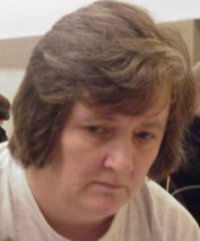Contest conducted by Marc Smith
Welcome to the third set of the 2024 edition of the world’s most popular bidding competition, brought to you by RealBridge.

Many of the world’s best players congregated in Louisville, Kentucky for the North American Spring Nationals this month. I am delighted to report that the winners of the main team event, the Vanderbilt Knockout Teams, included two members of our esteemed panel. Congratulations to Bobby Levin and Jill Levin (in her capacity as npc), who were members of the winning Nickell team, along with Nick Nickell, Steve Weinstein, Ralph Katz, Eric Greco and Geoff Hampson.
Two other panel members, Michal Klukowski and Sjoert Brink, made it to the semi-final stage of the Vanderbilt as members of the Switzerland team. Our other notable success in Louisville was Simon de Wijs, who was a member of the winning team in the Jacoby Open Swiss Teams.
Our guest panelist this month led the field with 76/80 on the very difficult January set. Piotr Koluda from Poland has been playing bridge for 30 years. Winner of the Polish National Pairs in 2015 and of the Polish Teams in 2019, he has played regularly in the Polish Premier League and in Polish trials for the past 10 years.
We are delighted to welcome a new panelist this month. Liz McGowan has been the Queen of Scottish bridge for as long as I can remember. Liz was a member of the Great Britain/Iceland team that won the World Mixed Teams in Rhodes in 1996. Representing GB, she won silver medals at the 1988 Venice Cup and the 1992 World Team Olympiad, and gold from the European Teams in 1997 and 1999. She was a member of the best-performing Scottish team ever, finishing fourth in the Women’s Teams at the 2016 World Games.
If you have a hand that you think would produce an interesting panel discussion, please send me details. Remember that the best problems offer three or more sensible actions rather than being a straight choice between two.
The panel produces a majority choice on only one of this month’s hands, and there are four deals on which there they offer support for at least six different choices. (Thanks, guys. Some of these are going to be a nightmare to mark 😊.)
This has turned out to be a particularly interesting set and, hopefully, very instructive too, with large numbers of readers scoring poorly on two or three hands by making what the panel consider to be huge underbids. Perhaps as tough as January, this set is certainly more challenging than February. With the lowest score ever leading the panel (just 74/80), high scores are at a premium once again, with only around 25 competitors out of close to 2000 scoring in the 70s.
The most popular action chosen by the competition entrants scores ‘10’ on just one of the eight hands this month, and voting with the largest group of competition entrants scores only 45/80 (way down from 70/80 last month). The average score this month is 48.09 (down from 55.23 in February). As always, there is plenty to be learned from the views of our expert panel, so let’s get to it…

|
ACTION |
MARKS |
PANEL |
Competitors' |
|
Dbl |
10 |
8 |
17 |
|
4NT |
9 |
1 |
16 |
|
5♦ |
8 |
1 |
5 |
|
5NT |
7 |
4 |
2 |
|
6♣ |
7 |
2 |
2 |
|
6♥ |
7 |
2 |
8 |
|
5♥ |
5 |
0 |
2 |
|
5♣ |
4 |
0 |
5 |
|
4♥ |
3 |
1 |
42 |
|
Pass |
0 |
0 |
1 |
Competition Entrant Average Score: 5.94
No majority choice from the panel, and seven different options supported, but a clear favorite nonetheless. Whether the largest faction would eventually reach the best contract is unclear, but they are still in with a chance, whilst many others are not. One certainty is that the most popular choice of the competitors, which attracted not far short of half of all competition entrants but only one solitary panelist, was a huge underbid that would not have scored well at the table either. Let’s see who wins the debate.
BROCK: Dbl. I think this shows cards but not much of a heart fit.
BERGEN: Dbl. With partner’s likely diamond void, the sky's the limit.
COHEN: Dbl. For now. Maybe something good will happen. If not, I am postponing my guess.
LARSSON: Dbl.
WANG: Dbl. If partner bids 4♥, I will continue with a 5♦ cue-bid as a slam try agreeing his suit.
VILLAS-BOAS: Dbl. I will start with a double to let partner show something more of his hand at a low level.
KOLUDA: Dbl: I’ll bid 5♣ after partner's 4♥/4♠, showing slam interest.
BIRD: Dbl. It would not be right to settle in hearts prematurely (possibly a 5-2 fit). Nor would it be satisfactory to choose clubs at some level. It’s better to show my strength with a double, seeing what happens next.
Relatively popular with competitors, Paul’s simple-looking solo effort may well offer the easiest route to the promised land…
MARSTON: 4NT. Assuming a diamond void, slam must be a good shot if partner has two keys.
Barnet might also perhaps find a way there.
SHENKIN: 5♦. I am worth some kind of try.
Only Cathy agreed with the largest group of competitors’ willingness to play in game.
C. BALDYSZ: 4♥.
The rest all settled for a small slam. The only question was which one…
ROBSON: 6♣. Relying on the opponents’ bidding, partner has a void diamond. He’d probably have bid 4♦ with a fifth spade, so is likely to have at least three clubs and probably more. If anything, 6♣ is conservative but it’s hard to see a sensible way to a grand.
McGOWAN: 6♣. I have been timed out. I am guessing that partner has four of the missing spades with longer hearts, but if she has a diamond void (not guaranteed these days) she should have a few clubs. If she has bid on a long heart suit she should convert – I must have tolerance. Of course, we may well miss a grand, but that’s why people pre-empt.
SUNDELIN: 6♥. Who knows?
I thought I got to ask the questions around here.
SILVER: 6♥. The villains have given me a tough guess. (I have no idea what a double here means.) As there is no way to explore for slam scientifically, I will only make a slam try, and hope for the best.
The second-largest faction on the panel chose to involve partner in the choice of denomination…
RONDON: 5NT. I think this response is a classic of bidding contests and tough competitive situations. We're in both here.
BRINK: 5NT. Life is Beautiful. Partner has short diamonds (probably a void) and thus slam is very likely. Obviously, slam is guaranteed if we’re playing old French players (partner has a void in diamonds 110 out of 100 times), but not against the Swedish twins (when partner has a doubleton diamond). Anyway, it feels like 6♣ is likely to make, but I give partner the chance to pick the correct slam...

Sophia highlights some of the difficulties that might follow 4NT, and thus concentrates on reaching the right small slam.
S. BALDYSZ: 5NT. Pick a slam. Partner could have a number of hands, 4-6-0-3, 3-6-0-4 or seven hearts. Partner probably doesn't have 4-5-0-4 as she didn't double on the first round. I can't see how to find out though about everything. If I Blackwood and partner shows one ace, will he know to pass 6♣? Over 5♥/5♠, it's also not possible to stop in 6♣ if partner doesn't have the ♣K. If I were playing Polish Blackwood I could ask for kings, because the responses are different. Perhaps partner might have bid differently if he had everything: ♠A-Q, ♥K-Q-(J) and ♣K.
Whilst, for Jill, Double was the alternative.
MEYERS: 5NT. This is close between 5NT and Double (correcting 4♠ to 5♥). I like 5NT, which is not GSF, but more bid the lowest strain in which you could play slam, as I believe it brings clubs into the picture better than Double.
Partner had Axxx/KQJxxx/---/Kxx so there were 13 easy tricks in clubs or hearts. If you rely on the opponents to hold nine diamonds, then Blackwood would likely lead to 4NT-5♠-5NT-6♣-7♣. It is perhaps surprising that more did not take that route, or is there some question about the meaning of 4NT in this auction? For those who started with a double, partner bids 4♠. If you bid 4NT now, is that Blackwood for spades? Does 5♦ also agree spades?
Looking at just the East/West hands, you would think getting to a grand slam would be easy, but those pesky opponents made it too difficult even for many of the world’s best players. What a wonderful thing pre-emptive bidding can be – thanks to Marty Bergen for encouraging so many players to such a powerful weapon to use against us 😊.

|
ACTION |
MARKS |
PANEL |
Competitors' |
|
Pass |
10 |
8 |
16 |
|
3♥ |
9 |
7 |
51 |
|
4♥ |
6 |
4 |
27 |
|
3NT |
2 |
0 |
6 |
Competition Entrant Average Score: 7.93
Most of the panel supported one of two choices on this deal, with those choosing to defend just edging it. Just over half of competitors voted for the panel’s second choice. For a change, aggressively bidding game garnered a higher proportion of competitors than it did panelists. Many of those opting for defense were confident about their choice…
BRINK: Pass. Matchpoints?? The easiest pass in history. Going for the magic +200. I love it!!!
VILLAS-BOAS: Pass. Matchpoints. My partner has the points sitting over the opener. It will probably be +200 or +500.
RONDON: Pass. Partner has doubled twice and I have a couple of tricks. Down one is better than +140 and, if we can make game, +500 or +800 could be possible.
MEYERS: Pass. It is matchpoints, and I think I am beating 3♦-Doubled at least two while I don't know that I am making 4♥, which is my second choice.
KOLUDA: Pass. It looks like playing matchpoints we have to choose between competitive pass and conservative 3♥. I am for active playing, so pass.
MARSTON: Pass. The diamond holding is not much use in hearts, but it is useful in diamonds.
SHENKIN: Pass. I’d take a chance at matchpoints.

Sally sums up the case for those who choose to defend.
BROCK: Pass. There seems little point in bidding 3♥, as I that is likely to end the auction, and I expect 3♦-Doubled to go down, scoring at least +200. So, the choice is between Pass and 4♥. To bid 4♥ is very undignified, particularly at MPs. I tell everyone else never to do it, and while I do it occasionally, it never works out.
Whilst some of those who bid 3♥ do so whilst gazing wistfully at a Pass card…
BERGEN: 3♥. Pass is very tempting.
BIRD: 3♥. The ♦Q-J-x may be of no value, so I’m not worried about bidding hearts at the minimum level. A pass might work well, it’s true.
Larry apparently expects 3♦-Doubled to produce +200, but bids anyway.
COHEN: 3♥. I don't want to punish partner for taking what was likely marginal action. For a heart contract, I effectively have a flat 5-count. Perhaps +140 (or even +170) will beat +100's at other tables where partner didn't risk a second double.
ROBSON: 3♥. Very conservative, and likely to be the second-best option between pass, 3♥ and 4♥. But, at Pairs, I’m naturally seeking to avoid a bottom. My diamonds say pass; my hearts say bid.
SUNDELIN: 3♥.
Only a couple opted for 3♥ in preference to bidding game.
McGOWAN: 3♥. At teams, I would bid game, but I do not want to punish partner for enterprise at Pairs.
SILVER: 3♥. Matchpoints is a game of pluses, so I will show my age by going low.
Some of those who bid game admit it may be too much…
WANG: 4♥. A little overbid.
S. BALDYSZ: 4♥. It seems like a couple of contracts could be right here. 4♥, 3♥ and even 3NT with some hands. I could have nothing, but I have ♥K-Q, although I also have points wasted in diamonds. I'm keeping in style with my aggressive approach (see: February set).
C. BALDYSZ: 4♥.
At least there is family/partnership unity here.
LARSSON: 4♥.
Partner had KQ10x/AJ10x/x/Axxx, so the odds are that we can make only nine tricks in hearts, whilst 3♦-Doubled rates to be at least one and maybe two down, so passing was the winning choice at the table.

|
ACTION |
MARKS |
PANEL |
Competitors' |
|
2♠ |
10 |
13 |
34 |
|
1♠ |
6 |
6 |
41 |
|
2♣ |
4 |
0 |
14 |
|
3♣ |
3 |
0 |
2 |
|
2♥ |
2 |
0 |
5 |
|
3♠ |
0 |
0 |
2 |
|
Pass |
0 |
0 |
1 |
|
3♥ |
0 |
0 |
1 |
Competition Entrant Average Score: 6.58
I set this hand as students so often have problems responding to takeout doubles. This is one of two hands this month on which I was concerned that the panel would think it trivial and produce close to a unanimous vote. Whilst it did produce the only majority from the panel, our experts’ responses were still something of a surprise. It didn’t occur to me that any member of the panel would bid 1♠, or that more than 40% of competitors would choose that option. I did think that we might get a smattering of votes for the choice of about 1-in-8 competition entrants, 2♣, with the plan of bidding 2♠ or even 3♠ when/if North rebid his hearts, but that option didn’t attract a single panel member. It just goes to show, what do I know?
BERGEN: 2♠. For me, no second choice.
KOLUDA: 2♠. No other choices playing IMPs.
COHEN: 2♠. This feels about right to me, no?
BROCK: 2♠. We are much more likely to make game in a major.
MARSTON: 2♠. It is hard to see a game if it is not in spades.
RONDON: 2♠: It's a Major and it's what my hand is worth. The longer clubs are a plus.
SILVER: 2♠. Since ten tricks are easier to take than eleven, and not wishing to bury the spade suit, I will make my game try where I get the most bang for my buck (or pound, since this is the mother country!)

C. BALDYSZ: 2♠.
SUNDELIN: 2♠.
MEYERS: 2♠. Not as many HCP as a "traditional" 2♠ bid, but high in playing strength and a good side suit.
ROBSON: 2♠. This could be wrong if partner is, say 3-1-4-5, and you could make a case for this hand-type to be included in a 2♥ bid as a passed hand. I’d prefer not to go there, so instead make the value bid.
BALDYSZ: 2♠. I'd really like to bid 1.5♠. Three hearts is not the best holding but, with 5-4 shape and high spot cards in the long suits, I'll stick to my aggressive style.
BIRD: 2♠. Anyone responding 2♣, hoping to rebid 2♠, would doubtless bid only 1♠ if someone forced an initial spade bid on them. The hand is well worth 2♠.
Not all agreed.
McGOWAN: 1♠. The hand is worth more, but I do not like to jump on a four-card suit, and I prefer to focus on the Major. I shall be disappointed but not too worried if it goes All Pass. If partner raises, I shall bid game. If the opponents compete further, I can bid 3♣ next time, which in my world shows a longer minor.
WANG: 1♠.
LARSSON: 1♠.
Barnet and Miguel seem to be on the same wavelength.
SHENKIN: 1♠. I can then bid 3♣ over 2♠ by partner.
VILLAS-BOAS: 1♠. If my partner bid 2♠, I can try an invitational 3♣.
As usual, Sjoert offers a logical approach for his choice.
BRINK: 1♠. The bid from the book is 2♠. But, be wise... How many authors are great bridge players? You have only three hearts, so it is very likely opener will bid hearts again. Then you can bid 3♣, and you will have described your hand perfectly.
On this hand from the knockout stages of the Australian NOT, there was no good game despite partner holding a 20-count: KQx/Jxx/AK10x/AKx. 4♠ has most chance, making on any 3-3 spade break and some layouts with a doubleton ♠J. At the table, North cashed three high hearts against 4♠ and then did not continue with the fourth heart that would have promoted a trump trick for South’s ♠J-x-x-x. (Declarer cannot afford to ruff in either hand.) However, declarer then misguessed the trumps to go one down anyway.

|
ACTION |
MARKS |
PANEL |
Competitors' |
|
3♠ |
10 |
7 |
7 |
|
4♠ |
9 |
5 |
10 |
|
Dbl |
8 |
6 |
11 |
|
3NT |
5 |
1 |
24 |
|
2♠ |
3 |
0 |
22 |
|
2NT |
2 |
0 |
11 |
|
Pass |
0 |
0 |
9 |
|
2♦ |
0 |
0 |
4 |
Competition Entrant Average Score: 4.56
Again, no clear majority, although 12-of-19 panelists chose a jump in spades to describe this hand. The other major faction attempts to get the message across with a double, but can they really expect partner to guess quite how extreme their hand is? Less than a third of competitors chose one of the three bids supported by most of the panel. The largest group chose 3NT, which attracted the support of only one panel member. Let’s start with Sjoert, whose prediction is way off the mark…
BRINK: 3♠. Great problem. I super like that I'm the smartest and so will be the only one bidding 3♠. Unluckily no points, but partner will understand directly that aces are worth enough to bid 4♠.... Every other bid is, in my eyes, not even close to bidding 3♠. 2♠ is not enough with this kind of hand - I am way too strong.
But this is a truly expert panel, so we have a number of others who are at least nearly as smart as Sjoert 😊
WANG: 3♠. Natural and invitation.
VILLAS-BOAS: 3♠. If my partner’s double is very weak, he can pass.
KOLUDA: 3♠. I'd like to play 4♠ if partner has aces. I hope she'll figure it out.
BIRD: 3♠. This is adequate to deal with a spoof 1♠ bid. Bidding 4♠ instead would risk a double when the 1♠ opening is genuine.
SUNDELIN: 3♠.

Jill sums up for the majority.
MEYERS: 3♠. Did South psych 1♠ in third seat? I am tempted to jump to 4♠ but, if South didn't psych, I am likely off three spade tricks and maybe an ace. I am going to bid 3♠, which will expose the psych and be invitational to 4♠. If partner has a couple of spades and a couple of aces, I expect her to raise me or bid 3NT. I I think 3♠ is begging partner to bid 4♠.
Some thought they had enough to commit to game.
RONDON: 4♠. I know that the 1♠ opening is almost certainly a psych, and I have no other way of making the situation clear to partner.
BROCK: 4♠. Who knows? I’ve never done this before! But at least I know where the outstanding trumps are.
You think?
S. BALDYSZ: 4♠. A couple of contracts could be right. If partner has two aces, I wouldn't mind playing in 4♠ - my spades are over the opponent's spades. As long as I don't lose three spades and a club. My second option would be 3♠.
SILVER: 4♠. I would make the same bid even if I was not in the land of four-card majors. (We of course may be cold for a spade slam but, on this auction, I have not the foggiest idea how to get there intelligentially.)
Of course, everyone would bid 4♠ if I had told them that Joey Silver, renowned for his three-card major-suit openings, was sitting South 😊
LARSSON: 4♠.
The final faction on the panel took what I think seems like a very dangerous approach…
MARSTON: Dbl. Showing a penalty double of spades.
BERGEN: Dbl. To show my trap pass.
Yes, but are you really happy if partner passes the double?
COHEN: Dbl. It’s just a question of which club I will lead. This is the normal action with a penalty pass of 1♠.
ROBSON: Dbl. Shows a good hand, not necessarily good clubs, implying a good spade holding. Perhaps I should give up and pass 2♣, aiming for a small plus, but I can’t bear to. Partner is probably 0-5-4-4 or similar and may pass the double. One can dream.
Apparently, they are.
S. BALDYSZ: Dbl.
McGOWAN: Dbl. This shows a hand that was about to pass 1♠-Doubled and can tolerate partner passing 2♣-Doubled if she has 4+ clubs. I suspect partner will remove to a red suit. I hope that when I then bid spades over that, she will smell out the psyche.
Barnet was the only panel member to agree with the largest group of competitors.
SHENKIN: 3NT.
What are the chances that South is messing around in third seat? It was another deal from Australia, and partner had 10x/KQxx/Axxx/Jxx, so 4♠ was making even though the trump finesse failed!

|
ACTION |
MARKS |
PANEL |
Competitors' |
|
4♥ |
10 |
7 |
8 |
|
3♥ |
9 |
3 |
21 |
|
2♠ |
8 |
8 |
24 |
|
3♦ |
8 |
1 |
16 |
|
3♠ |
2 |
0 |
15 |
|
4♠ |
0 |
0 |
5 |
|
4♦ |
0 |
0 |
5 |
|
4NT |
0 |
0 |
2 |
|
5♦ |
0 |
0 |
2 |
|
Dbl |
0 |
0 |
1 |
|
3♣ |
0 |
0 |
1 |
Competition Entrant Average Score: 6.19
Wow! This was the other hand this month on which I feared a big majority, and yet the action that I thought would be an almost universal choice (2♠) does not even pick up top marks.
The panel is split into two camps: Those who rebid their spades, and those who support diamonds immediately. With no majority on the panel, the marking reflects that 11-of-19 panelists choose to support diamonds by some route, although it is so close that everyone scores fairly well. Let’s start the debate with those who rebid their spades…
BROCK: 2♠. For now.
ROBSON: 2♠. We’re playing 2/1 I assume, so I must show my six spades before anything else.
LARSSON: 2♠.
BERGEN: 2♠. As usual, in a constructive auction, I prefer the most economical action.
RONDON: 2♠. It's forcing and allows me to hear more from partner.
MARSTON: 2♠. I hate not supporting diamonds, but there is too much chance that 4♠ is the best game.
BIRD: 2♠. Raising diamonds straight away, with such a spade suit, would be unattractive at IMPs, let alone matchpoints.
Sophia sums up for the spade bidders.
S. BALDYSZ: 2♠. At IMPs, I'd bid 4♥ to maximize our chances of reaching slam. At matchpoints, I have to keep the option of a spade contract open. I'll show my good spades and then my diamond support on the next round.

The rest all raise diamonds via some route or another.
COHEN: 3♥. I like this to promise shortness. Yes, I am giving up (for now, anyway) on spades, but the slam potential is just too much to ignore. I will bid 4♠ over 3NT by partner.
KOLUDA: 3♥. It’s matchpoints, so my plan is to check on diamond slam chances, with option to play 4♠ if partner has a minimum.
Regular partnerships might find it worth discussing exactly what various bids mean, as Sjoert explains…
BRINK: 3♥. 4♥ is a void, 3♥ a singleton (without short hearts you bid 3♦). Boring problem.
That seems to make sense, but quite a few disagree…
VILLAS-BOAS: 4♥. Diamond support, short in hearts.
WANG: 4♥. Splinter agreeing diamonds.
MEYERS: 4♥. I am showing my wonderful diamond support and stiff heart. I’m not going to pussyfoot around.
C. BALDYSZ: 4♥.
Although some were still concerned that spades may be better…
SUNDELIN: 4♥. I am probably misleading partner about my suit qualities.
SILVER: 4♥. For now, I will make a slam try in diamonds. If the auction goes my way, I intend to steer the contract to 6♠/7♠.
McGOWAN: 4♥. Splinter, apparently agreeing diamonds. Of course, my brilliant partner will revert to spades if she has three-card support, only four diamonds, and wasted stuff in hearts.
Only Barent simply showed his diamond fit at this stage.
SHENKIN: 3♦.
The main problem with 2♠ now is that, whatever you bid, it will go 4♥-Pass-Pass back to you. At the table, partner had x/Axx/KQxxx/KJxx, so 6♦ was where you wanted to play. If you are only bidding game, spades is best, but agreeing diamonds immediately will surely make it easier to reach the top spot.

|
ACTION |
MARKS |
PANEL |
Competitors' |
|
4♦ |
10 |
6 |
12 |
|
6♣ |
9 |
2 |
2 |
|
6♥ |
8 |
3 |
25 |
|
5♦ |
7 |
3 |
1 |
|
4♣ |
7 |
1 |
0 |
|
5♣ |
7 |
1 |
0 |
|
7♣ |
7 |
1 |
2 |
|
4NT |
6 |
1 |
2 |
|
5NT |
6 |
0 |
0 |
|
3♠ |
4 |
0 |
5 |
|
7♥ |
2 |
1 |
3 |
|
4♥ |
2 |
0 |
34 |
|
3♥ |
0 |
0 |
10 |
|
5♥ |
0 |
0 |
2 |
Competition Entrant Average Score: 4.65
Panelists supported a remarkable nine different options on this deal, including club bids at the four, five, six and seven level, so another marking nightmare. The bad news is that not a single panelist mirrored the selection of the largest group of competitors, with over a quarter choosing the massive underbid of 4♥. Let’s see what the panelists have to say in support of their choices…
BERGEN: 4♦. For now, with this freak hand.
A couple of multiple world champions are of similar mind…
BROCK: 4♦. I’m going to bid at least 6♣.
MEYERS: 4♦. I am not going to settle for less than 6♣, and we could easily be cold for a grand.
Larry raises a question…
COHEN: 4♦. Who gets such exciting hands in real life? Anyway, I'm just stalling for now. Maybe partner jumps to 6♣ (in my dreams) which I would happily raise.
And Liz provides him with an answer.
McGOWAN: 4♦. I know this hand: It caused a lot of trouble at the recent Camrose weekend. Partner has shown clubs, despite missing the AK, so she presumably has quite a few. I shall try to torture a heart cue-bid out of her enroute to a likely grand.
Like Liz, Piotr highlights a compelling reason for the panel’s most popular choice…
KOLUDA: 4♦. I hope to hear a 4♥ cue-bid from partner, and finish in 7♣.
A few panelists simply take a shot at what they think is the right contract, with varying degrees of ambition…
BIRD: 6♥. I occasionally exhibit signs of pre-senility nowadays, but these do not extend to spurning an 8-card major to show club support. If partner holds the ♥K alongside his modest clubs, he may at least consider a raise.
RONDON: 6♥: I can't bid a grand missing the king of my suit. At least partner has solved the club issue for me.
Joey suggests how we might have avoided this problem altogether.
SILVER: 6♥. I would make a takeout double with this hand only in another lifetime. The best way to get this type of hand across is to start with a simple 2♥ overcall, as it almost never goes all pass with such wild distribution. You will then get the opportunity to have a semi-intelligent auction, which is something that starting with double precludes! It would help to know what my ox's double means, if penalties I might well bid only 4♥ and, if responsive, I might consider trying for slam.
It's hard to argue with the next choice when the contract will be excellent opposite as little as xxxx/x/xxx/10xxxx, and partner will clearly have more than that.
MARSTON: 6♣. My best guess.
BALDYSZ: 6♣.
There is obviously something in the water in Sweden…
SUNDELIN: 7♣. Assuming partner's double showed clubs.
LARSSON: 7♥.
Sjoert and Barnet both consider the tactical considerations of the problem, and unveil their inner-Zia...
BRINK: 4♣. You can make 7♣ almost guaranteed. But, they might have a very cheap save. Peter Bertheau is a master at this kind of problem. Surprisingly, he said, be wise, bid 4♣... Now, they think you are saving, and you will win the auction for sure. I realize that this is bridge from another planet. Nobody would understand, but I'm sure this will work out great. Playing poker at the bridge table, I would fold, but having this help, I expect 11 points, since brilliancy is only recognized when you are the only one....
You demonstrate your brilliancy with great regularity, Sjoert… either that or you are completely crazy! Is this what happens when you hang out with Klukowski? 😊
SHENKIN: 5♣. I want to make sure of playing the hand, so I am walking the dog. I’ll bid 6♣ over the enemy’s 5♦, and 7♣ if they bid 6♦. Playing in hearts, we might not be able to reach dummy for a possible finesse.
Andrew offers an alternative solution to the same problem.
ROBSON: 4NT. Keycard for clubs. We’re driving seven (of course) but I don’t want them to save. The other alternative is 3♥, which should probably be forcing, potentially enabling us to locate the 7♥-over-7♦. But I can’t bear watching partner reach for the front portion of the bidding box over my “forcing” 3♥.
The final faction try to involve partner in the process.
WANG: 5♦. Showing a void and grand slam interest.
S. BALDYSZ: 5♦. It seems unlikely that partner has just ♣QJxxx and nothing else. Heart shortness is likely, although J-x is certainly possible. I'm pretty sure I'm showing a void and, if he bids 5♥, I'll bid 7♣. My other option is to bid 7♣ now.
VILLAS-BOAS: 5♦. I think the double shows clubs, so 5♦ now should be Exclusion. After partner shows none, I’ll ask for the ♣Q to get to 7♣.
Partner held Jxx/KJ10/Jxx/Q10xx so 7♥ and 7♣ were both good spots. Clubs were 3-2 and hearts 1-1. Should East choose hearts if West bids 5NT? Should he raise a jump to 6♥? Reaching a small slam was good enough for a swing in a couple of matches at the Camrose, as West at two tables jumped to 4♥ over 1♠ and scored +710. The Irish were the only pair to bid and make a grand, and they were pushed into it when South twice saved in the pass out seat, in 5♠ then 6♠, but did not then save when East bid a seventh heart.

|
ACTION |
MARKS |
PANEL |
Competitors' |
|
Pass |
10 |
7 |
38 |
|
5♣ |
9 |
2 |
1 |
|
5♦ |
8 |
5 |
19 |
|
5♥ |
7 |
2 |
4 |
|
6♦ |
7 |
2 |
10 |
|
4NT |
7 |
1 |
24 |
|
6♠ |
3 |
0 |
2 |
|
5♠ |
0 |
0 |
1 |
Competition Entrant Average Score: 8.22
We have another very divided panel and thus another tricky hand to mark. The result is that everyone scores fairly well, so this is the month’s highest-scoring hand. The panel is divided into three main factions, those who pass 4♠, those who correct to 5♦, and those who either look for or commit to slam. The main question to be answered is what do we think partner has for this auction. Let’s start with those who agree with the choice of the largest group of competition entrants…
BRINK: Pass. I have bid my hand, so I don't think I should bid more. Do I miss something when partner can't cue-bid 4♣. I expect the answer is no. Pass is 77%. I wish all boards were this easy.
MARSTON: Pass. I am not willing to gamble on slam.
Hanoi pinpoints the primary reason behind the majority’s choice.
RONDON: Pass: A MP decision. Even in the 4-3 fit, it will be a better result than making 5♦.
COHEN: Pass. Partner is presumably 3-5-4-1. I would have splintered with that. Anyway, we might be off two aces and, even if we aren't, I am hoping 680 beats those playing 5♦ at other tables.
ROBSON: Pass. I think 4♠ should score pretty okay, even if partner has the nuts: ♠A, ♦A and the stiff club. But I think partner should bid 4♣ with that and it’s much more likely partner has only one of those aces. I think passing 4♠ is, in truth, pretty clear. We may not even make ten tricks (two diamond ruffs?)
SILVER: Pass. True, we might be cold for six or seven, but I have no idea how to explore intelligently for slam without risking a minus. Making a slam try by going to the five-level looks futile, because my pointed suit holdings are too good to expect partner to co-operate as his pointed suit holdings cannot be robust. Hey we are playing pairs, and we have found the spade suit, so I will quit while I think I am ahead.

David earns the Comment of the Month award, for honesty if nothing else 😊.
BIRD: Pass. My reason for preferring this to 5♦ may not be particularly instructive. The £1 coin came down ‘heads’.
The next largest group simply correct to what they think is the safest game…
BERGEN: 5♦. I believe that the 3♦ raise denied four spades. Slam might be cold opposite a 3-5-4-1 hand but, with that, after 3♠, I'd expect him to control-bid 4♣.
MEYERS: 5♦. It is tempting to pass 4♠, but I am going to be taking the tap with the four-card spade suit. I think partner has something like 3-5-3-2 shape.
WANG: 5♦. Let partner decide whether to bid or pass.
C. BALDYSZ: 5♦.
VILLAS-BOAS: 5♦. My partner could have said 4♣ with 4-5-4-0, so it seems to me that he has a weak 3-5-4-1, and playing in diamonds seems better to me.
Some look for slam whilst keeping 5♦ in the picture.
LARSSON: 4NT.
SHENKIN: 5♣. There is a good case for passing, as no 4♣ from partner, but I will make one try.
BROCK: 5♣. Not quite enough to bid the slam because there could easily be two aces missing, but I’m going to cue partner’s club control for him and see whatever he fancies. Our system is a bit unclear. For me a reverse does not show extras after a 2/1, so he has denied four spades, but maybe he hasn’t for other people. What suit is agreed?
Whilst the rest simply commit to slam.
S. BALDYSZ: 5♥. It seems unlikely that our plus score is in danger at the five-level, unless partner has all of his points in hearts and a stiff club honor. Although it's still possible that we're off two aces, partner could have Axxx/AKJxx/xxx/x. I'd be concerned that 5♦ would be to play in Poland, because my 3♠ could just be value showing. Over 5♥, partner can evaluate his hand accordingly. With aces outside of hearts, he can bid slam. As I didn’t bid 5♣, partner will know I have no wastage there, so even reaching a grand might be possible.
KOLUDA: 5♥. It looks like partner is showing his distribution, so 3-5-4-1. The problem is we cannot ask for aces because of the heart void, so I bid 5♥ to show an extreme hand without a club cue-bid.
McGOWAN: 6♦. I suppose it is possible that partner is 4-5-4-0 and neither opponent fancied pre-empting in clubs, but I find that unlikely. 3♠ might just be stopper-showing with no club control. So, if 4♠ is a cue-bid, it must be a Sweep Cue, showing controls in every suit.
SUNDELIN: 6♦. As I have no way of discovering three aces and a void (or a void and the right two aces, for that matter), and 6♠ might even go down in some cases, a diamond ruff and spades 4-1, for instance.
Partner had Axx/K10xxx/Axxx/x, so 6♦ was an excellent spot. If you are not bidding slam, you probably want to play 4♠ rather than 5♦ at MPs.

|
ACTION |
MARKS |
PANEL |
Competitors' |
|
4♣ |
10 |
6 |
14 |
|
3♦ |
9 |
5 |
2 |
|
2♠ |
7 |
3 |
10 |
|
5♣ |
7 |
3 |
5 |
|
3♥ |
6 |
1 |
2 |
|
Redbl |
5 |
1 |
9 |
|
3♣ |
2 |
0 |
41 |
|
Pass |
0 |
0 |
12 |
|
2♦ |
0 |
0 |
3 |
|
2NT |
0 |
0 |
1 |
|
4♠ |
0 |
0 |
1 |
|
3♠ |
0 |
0 |
1 |
Competition Entrant Average Score: 4.02
Another hand with numerous options suggested by the panel, none of them garnering close to a majority. Again, the competition entrants’ most popular choice, with 40% voting for 3♣, is a huge underbid that attracted not a single panelist’s vote, and that is why this is the month’s lowest-scoring hand. When I did these problems at the start of the month, I was in the camp with the largest faction on the panel…
MARSTON: 4♣. This seems about right on value.
SUNDELIN: 4♣. I will leave guesses to others.
LARSSON: 4♣.
WANG: 4♣. Not a bad hand.
Hanoi and Barent make the same point about one of the alternatives…
RONDON: 4♣. Taking their space and showing my fit. I would have liked to show my splinter, but that'll help opener show hearts by doubling.
SHENKIN: 4♣. Why tell the opponents about the singleton heart? Partner will know anyway if LHO bids 4♥.
But Marty was happy to show his shortage.
BERGEN: 3♥. I definitely want to splinter with 3♥. Is 3♥ DEFINITELY a splinter? South could have ♥xxx, so surely it should be.
A larger faction preferred to start with a cue-bid raise.
MEYERS: 2♠. A cue-bid agreeing clubs. 3♥, the way I play, would not be a splinter.
BRINK: 2♠. A good raise. Don't be a hero on every board (best advice, especially for myself).
VILLAS-BOAS: 2♠. I can bid 5♣ later.
Whilst Piotr shows his values via a different route.
KOLUDA: Redbl. This should show a very good hand for clubs when everybody is bidding.
Another group simply jump to game.
BROCK: 5♣. I am used to facing pretty strong overcalls at the two-level vulnerable.
C. BALDYSZ: 5♣.
COHEN: 5♣. Let's put it to them. I'll sort of want to bid this later anyway, either as a save or to make.
For me, there is little doubt who won the debate on this hand, and they have convinced me that their choice is the best bid.
ROBSON: 3♦. I honestly don’t know if we’re playing fit jumps, but I’ve surely got to bid my diamonds - for the lead and to help partner’s judgement.
Liz sums up the case…
McGOWAN: 3♦. Fit jump. Fewer cards than optimal, but this is a fair description of my hand and likely to be more helpful than a simple raise when partner is about to be faced with a tough decision over some number of hearts.

S. BALDYSZ: 3♦. Playing with my Mom, I'm bidding 3♦ as suit+fit. I'm not sure that's the standard here. Hope it is. Otherwise, I'd have to guess to bid some number of clubs.
SILVER: 3♦. It's a fit showing jump (if we play them) to invite partner to the party. If we were not playing them, I would say, f*** it, and bid 5♣!
BIRD: 3♦. The alternative of 2♠ says nothing about my red suits. The 3♦ fit-jump paints a more helpful picture.
Partner had x/xxx/Axx/KQJxxx so you surely want to play in 5♣, which will probably make if the diamond finesse works. Even if not, it seems likely to be a good save against their major-suit game.

We have a tie atop the panel this month, with Paul Marston and David Bird leading the way with 74/80. That is the lowest score we’ve had from someone leading the panel, which confirms that this was another difficult set.
Completing this month’s podium are Sally Brock and Larry Cohen, just a point behind with 73/80. Congratulations to our guest panelist this month, Piotr Koluda, who returned a very commendable 71/80, outscoring more than half of the panel.
Thanks to all members of the panel. See you again next month.
|
David BIRD |
Dbl |
3♥ |
2♠ |
3♠ |
2♠ |
6♥ |
Pass |
3♦ |
74 |
|
Paul MARSTON |
4NT |
Pass |
2♠ |
Dbl |
2♠ |
6♣ |
Pass |
4♣ |
74 |
|
Sally BROCK |
Dbl |
Pass |
2♠ |
4♠ |
2♠ |
4♦ |
5♣ |
5♣ |
73 |
|
Larry COHEN |
Dbl |
3♥ |
2♠ |
Dbl |
3♥ |
4♦ |
Pass |
5♣ |
73 |
|
Jill MEYERS |
5NT |
Pass |
2♠ |
3♠ |
4♥ |
4♦ |
5♦ |
2♠ |
72 |
|
Hanoi RONDON |
5NT |
Pass |
2♠ |
4♠ |
2♠ |
6♥ |
Pass |
4♣ |
72 |
|
Joey SILVER |
6♥ |
3♥ |
2♠ |
4♠ |
4♥ |
6♥ |
Pass |
3♦ |
72 |
|
Piotr KOLUDA |
Dbl |
Pass |
2♠ |
3♠ |
3♥ |
4♦ |
5♥ |
Rdbl |
71 |
|
P.O. SUNDELIN |
6♥ |
3♥ |
2♠ |
3♠ |
4♥ |
7♣ |
6♦ |
4♣ |
70 |
|
Marty BERGEN |
Dbl |
3♥ |
2♠ |
Dbl |
2♠ |
4♦ |
5♦ |
3♥ |
69 |
|
Miguel VILLAS-BOAS |
Dbl |
Pass |
1♠ |
3♠ |
4♥ |
5♦ |
5♦ |
2♠ |
68 |
|
Andrew ROBSON |
6♣ |
3♥ |
2♠ |
Dbl |
2♠ |
4NT |
Pass |
3♦ |
67 |
|
Wenfei WANG |
Dbl |
4♥ |
1♠ |
3♠ |
4♥ |
5♦ |
5♦ |
4♣ |
67 |
|
Sjoert BRINK |
5NT |
Pass |
1♠ |
3♠ |
3♥ |
4♣ |
Pass |
2♠ |
66 |
|
Liz McGOWAN |
6♣ |
3♥ |
1♠ |
Dbl |
4♥ |
4♦ |
6♦ |
3♦ |
66 |
|
Sofia BALDYSZ |
5NT |
4♥ |
2♠ |
4♠ |
2♠ |
5♦ |
5♥ |
3♦ |
63 |
|
Barnet SHENKIN |
5♦ |
Pass |
1♠ |
3NT |
3♦ |
5♣ |
5♣ |
4♣ |
63 |
|
Cathy BALDYSZ |
4♥ |
4♥ |
2♠ |
Dbl |
4♥ |
6♣ |
5♦ |
5♣ |
61 |
|
Jessica LARSSON |
Dbl |
4♥ |
1♠ |
4♠ |
2♠ |
7♥ |
4NT |
4♣ |
58 |
|
TOP SCORE |
Dbl |
Pass |
2♠ |
3♠ |
4♥ |
4♦ |
Pass |
4♣ |
|
|
HAND 1: |
Dbl 10 |
4NT 9 |
5♦ 8 |
5NT/6♣/6♥ 7 |
5♥ 5 |
5♣ 4 |
4♥ 3 |
|
HAND 2: |
Pass 10 |
3♥ 9 |
4♥ 6 |
3NT 2 |
|
|
|
|
HAND 3: |
2♠ 10 |
1♠ 6 |
2♣ 4 |
3♣ 3 |
2♥ 2 |
|
|
|
HAND 4: |
3♠ 10 |
4♠ 9 |
Dbl 8 |
3NT 5 |
2♠ 3 |
2NT 2 |
|
|
HAND 5: |
4♥ 10 |
3♥ 9 |
2♠/3♦ 8 |
3♠ 2 |
|
|
|
|
HAND 6: |
4♦ 10 |
6♣ 9 |
6♥ 8 |
4♣/5♣/5♦/7♣ 7 |
4NT/5NT 6 |
3♠ 4 |
4♥/7♥ 2 |
|
HAND 7: |
Pass 10 |
5♣ 9 |
5♦ 8 |
4NT/5♥/6♦ 7 |
6♠ 3 |
|
|
|
HAND 8: |
4♣ 10 |
3♦ 9 |
2♠/5♣ 7 |
3♥ 6 |
Redbl 5 |
3♣ 2 |
|
|
HAND 1: |
5.94 |
|
HAND 2: |
7.93 |
|
HAND 3: |
6.58 |
|
HAND 4: |
4.56 |
|
HAND 5: |
6.19 |
|
HAND 6: |
4.54 |
|
HAND 7: |
8.22 |
|
HAND 8: |
4.02 |